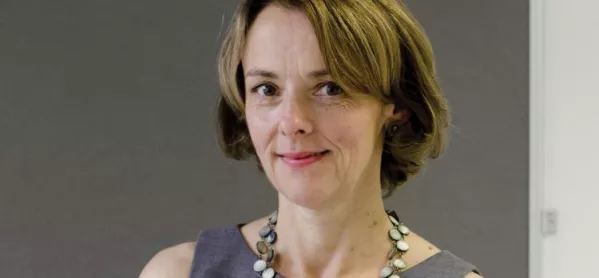Schools are stuck “in the dark ages” when it comes to part-time working, the co-founder of Now Teach has said.
Lucy Kellaway, who started Now Teach to help older professionals in other occupations switch into teaching, said her own decision to go part-time had made the difference between teaching being “unendurably hard work” and “completely manageable”.
Ms Kellaway worked as a Financial Times journalist for 30 years before founding Now Teach and retraining as a maths teacher in a London state school last year.
During her training year, she worked full-time, but since becoming a newly qualified teacher in September, she has switched to teaching business studies and economics and has moved to three days a week.
Ms Kellaway told Tes she had always planned to work part-time after her first year, and that this move, combined with her change in subject, had “transformed everything”.
“It was hell the first year but, astonishingly, now I am really loving it,” she said.
“The two things that have transformed everything for me is that I’m teaching something that I adore, and just as important, I’m [working] three days a week.
“It seems to me that working three days is the difference between teaching being just unendurably hard work, and it being - it’s not easy - it’s just completely manageable.
“It just makes me so sad that every teacher can’t do three days a week.”
She added: “When I came in to see my students today, I was delighted to see them because I wasn’t in school yesterday. So I’m very irritatingly Pollyannish.”
However, Ms Kellaway - who wrote extensively about management during her time at the FT - said that the teaching profession was lagging far behind other occupations in its openness to flexible working.
“One of the things that we’re trying to do at Now Teach is to push the part-time agenda,” she said. “I think schools are in the dark ages on part-time working, compared with any other industry you can think of.” She said about half of the current cohort of Now Teach NQTs were working part-time.
On her decision to change subject, Ms Kellaway said: “It just is a matter of teaching a subject you really do love and know about, and that is meant to be one of the strengths of Now Teach - we’re meant to be coming back to the subjects that we know and love.
“Actually, maths wasn’t right for me, it was too long ago since I’d done it.
“By comparison, in business studies and economics I’m absolutely in my element.”
Ms Kellaway was speaking with Tes after the Department for Education announced that Now Teach was one of three organisations - along with Cognition Education and the Brilliant Club - to be awarded a total of £10.7 million to recruit up to 600 teachers over the next two years.
“Without that money I thought we probably didn’t exist as an organisation,” said Ms Kellaway. “It allows us to be secure for at least two years and to think about growing.”
She added: “Can I guarantee that this is going to be a hugely successful initiative in the future? Of course I can’t.
“But what I think we’ve already been really successful in doing is, by talking so hard about older professionals going into teaching, I know we’ve been responsible for increasing that number, even when they’re not doing it through us.
“Now Teach has had a ripple effect, which is hugely valuable beyond our numbers.”




